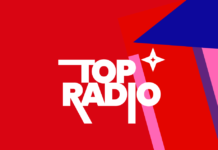For thirty years, the broadcasting reality in Croatia has been marked by one frequency – 101 MHz. In the 1990s, that frequency was synonymous with the struggle for democracy, and at the beginning of the 21st century, it became known for the internal conflicts of “harmonious siblings” and consequently media survival, and more recently, with the culmination of frequency allocation to Top Radio, 101 became a test of the unreliability of the national broadcasting regulator.
Hundreds of pages of journalistic articles, blogs, journalistic and scientific papers have been written about Radio 101, the bearer of the glory of this sung and, it seems, haunted frequency.
This radio station in its golden days, in the late 1980s and much of the 1990s, was equally the spiritus movens of democratic movements (one of the few media points of resistance to the authoritarian regime) and a kind of laboratory of radio expression. With the democratic changes of the 2000s, a lot has changed. Never after will Radio 101 have had such significance and influence as in the 1900s, but its broadcasting on 101 megahertz until a few months ago had some symbolic significance for the libertarian history of broadcasting in Croatia.
We can accept that neither in the media industry nor in others there is room for feelings and so-called old fame. However, after a series of events in recent months, from the moment it was announced that Radio 101 would lose the concession to the decision on a new concessionaire, the impression was neither the will nor the desire to give 101 a chance to survive. It was as if the regulatory body could hardly wait for this haunted frequency, which could never get its peace, to be handed to someone else.
There are too many coincidences to believe in the random selection of a new concessionaire – Top Radio. Just look at the comparison of bids, with a set of criteria, of all eight registered concession candidates. And it is obvious that Top radio does not stand out in any way to believe that it deserves the favor of the members of the Electronic Media Council. The only thing that Top Radio reported and no one else did, and by that it is different, is the statute of the media. If that made them stand out, which we doubt, then that is the greatest possible nonsense. Because, what is the use of the media statute, to a media that has not even started working yet? If it was brought by the director and owner Ivan Jurić Kaćunić even before the start of the broadcast, did the employees or future employees listed in the bid application comment on it, and do they agree with it? If not, then what is the real purpose of the media statute? We can do so indefinitely.
It also seems that the statutes of the media have become only obligatory papers, only that it is on the bill, emptied of all meaning and purpose (except to favor those from who they should benefit).
In fact, in the pile of criteria that concession candidates had to meet at a frequency of 101 megahertz, one was missing, the most important – the credibility of the concessionaire. If the criterion had existed, then, as Media Daily has written in recent days and weeks, explaining all the financial malversations of Top Radio owners that the Electronic Media Council has not paid attention to for years, the company owned by Ivan Jurić Kaćunić should have not get the concession…
But it got it, common sense despite, so 101 megahertz continues to be a haunted concession and the Electronic Media Council has definitely dropped to the level of the Telecommunications Council, which almost thirty years ago was synonymous with non-transparency and the promotion of hidden (media) interests.
According to the research of the Center for Pluralism and Freedom of the Media at the European University Institute, about which we published a text last Thursday, in terms of transparency of ownership, Croatia is classified as a high-risk country among EU members. Also, it states that “in Croatia, the regulation of the media sector is stagnating, which has led to a deterioration of media pluralism.”
Isn’t the decision of the Electronic Media Council to award a concession to Top Radio just a confirmation of these international insights into the media situation in Croatia? And isn’t it time for everything to be discussed publicly by the Ministry of Culture and Media and the Government itself? We may not even get an answer.
Perhaps in these bodies, the authorities think that the mere backdrop of Potemkin’s village of Croatian pluralism and media transparency is enough to respect the procedure and formal decision-making by secret ballot.



 Croatia
Croatia



 Montenegro
Montenegro








